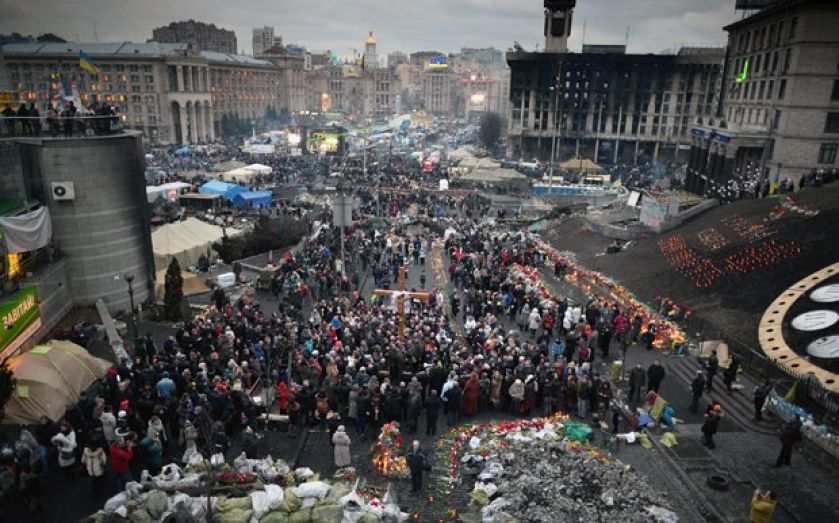Moscow gives new Kiev leaders chilly reception

POLITICAL tensions worsened in the disordered aftermath of Ukraine’s change in government yesterday, as the Russian state balked at the new administration’s overtly pro-European stance.
Ukrainian finance minister Yuriy Kolobov announced yesterday that the country was seeking about $35bn (£21.03bn) in financial assistance over the next two years.
Following the recent violence in Kiev and the ousting of former President Viktor Yanukovich, Kolobov also announced that he is aiming for a loan from their “international partners” within weeks, naming the US and Poland.
The announcement also proposed a conference of potential international donors, mentioning EU states, the US and International Monetary Fund (IMF), but pointedly not referring to any support from the Russian government.
Russian Prime Minister Dmitry Medvedev said yesterday that the Russian state doubted the legitimacy of the interim government, which he told domestic media had come to power by way of an “armed mutiny”.
“There is a real threat to our interests and to the lives of our citizens,” he added. The country was due to purchase $2bn in Ukrainian eurobonds from the government in Kiev, but suspended the payment after the collapse of the Yanukovich government.
The Russian ministry of foreign affairs also recalled the ambassador to Ukraine to brief the government on developments, issuing a statement supporting the positions of politicians and residents in southern and eastern Ukraine.
There were also protests in Sevastopol yesterday, the largest city in the more pro-Russian Crimea region. Some demonstrators waved Russian flags.
The suggestion of international financial aid for the country buoyed investors earlier in the day, driving up the value of Ukraine’s bonds, but yields on the risky debt remain elevated, at well over eight per cent.